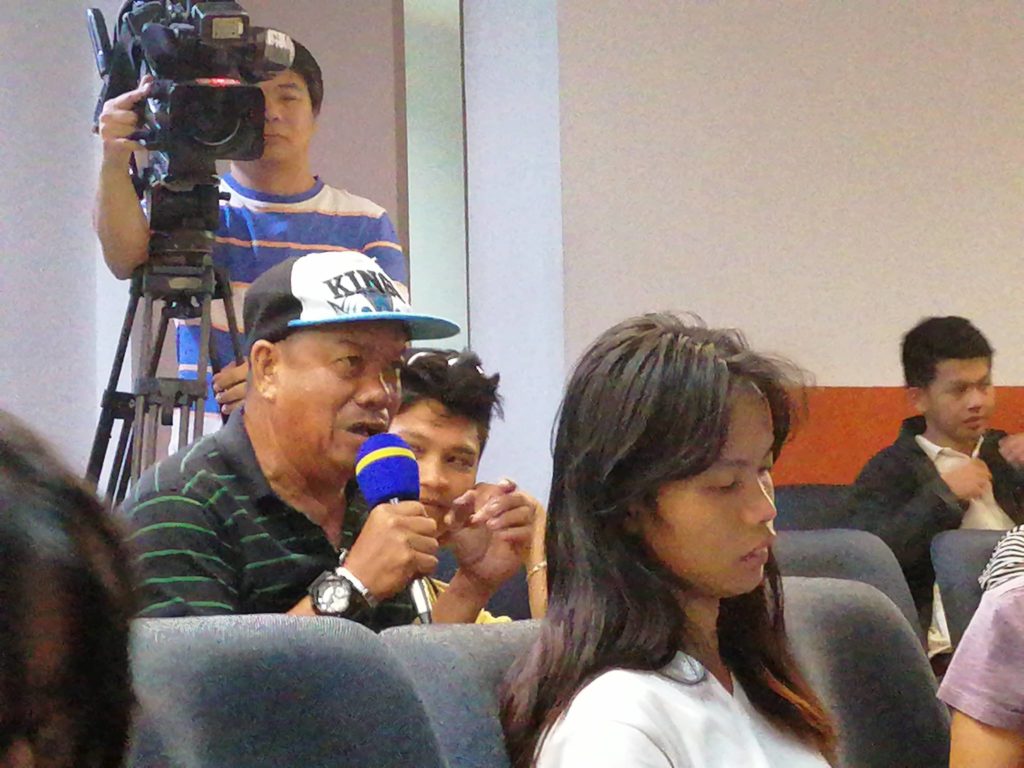7 March 2019
On February 14, President Rodrigo Duterte signed into law Republic Act 1103 or the #Rice Tariffication Law which lifts import restrictions on rice, an action the government hopes will make it less expensive for Filipinos. Rather than restricting the amount of rice that will come to the country, rice imports will just be hit by a tariff.
But does this law really resolve the problem of unaffordable rice in the Philippines?
Apparently not. Deregulation of rice will mean the unlimited entry of imported rice in the country, to the loss of Filipino rice farmers and the local rice industry as a whole which can’t go up against the prices of rice from countries like Thailand and Vietnam.
Still, the government is saying that this increased amount of rice is anticipated to be advantageous to rice buyers who will have means to inexpensive rice.
But this raises doubt to Filipino consumers. According to the Bangko Sentral ng Pilipinas, the impact of rice tariffication would not be enough to bring the 2018 full-year inflation rate back to the 2-4% target range.
According to farmers’ groups, opening up the Philippines to more rice imports could actually lead to higher prices. Since more foreign traders would have access to the Philippines, they could, in theory, manipulate supply to bring prices up.

During a Forum on Rice Tariffication, farmers from Southern Tagalog raised concern on the presence of pests in rice when the country is flooded with imported rice.
(Photo credit: AGHAM)
Bantay Bigas said that it is easier for smuggled rice to get into the country with a liberalized importation protocol as smugglers take advantage of the arrival of rice imports. It also said that under tariffication, more private traders are allowed to import resulting to the flooding of imported rice and making the monitoring of rice imports more difficult.
Kilusang Magbubukid ng Pilipinas also called the rice tariffication law as a death warrant for the local rice industry, as it would usher in imported rice which would wipe out local rice farmers, who already bear the high cost of palay production, while its buying price remains low.
Thousands of employees of the National Food Authority will also lose their jobs because of this law since it will stop regulating international and domestic rice trade. The agency said that it will also stop licensing and registering businesses engaged in the grains business, collecting regulatory fees and enforcing rules and regulations in the grain business, among others.
The new rice tariffication law indeed spells disaster for Filipinos. It cannot assure us that prices of rice would go down. In fact, rice could be more expensive due to the manipulation of private and foreign traders. It would also adversely affect millions of Filipino farmers when cheaper imported rice comes into the country. It will also render thousands of NFA employees jobless. This only means hunger for the poor Filipinos who depend on rice as a staple food, and on the rice industry as their source of income.
Instead of liberalizing the rice industry, the government should fully subsidize farmers, like what Thailand and Vietnam do, so they can compete with imported rice. It should also go after rice importation cartels and boost the productivity of our Filipino farmers.
This is the only way to save millions of Filipinos from the looming hunger caused by this law.
Sources:
Philippine Network of #Food Security Programmes
Bantay Bigas
National Food Authority Employees’ Union
Kilusang Magbubukid ng Pilipinas
